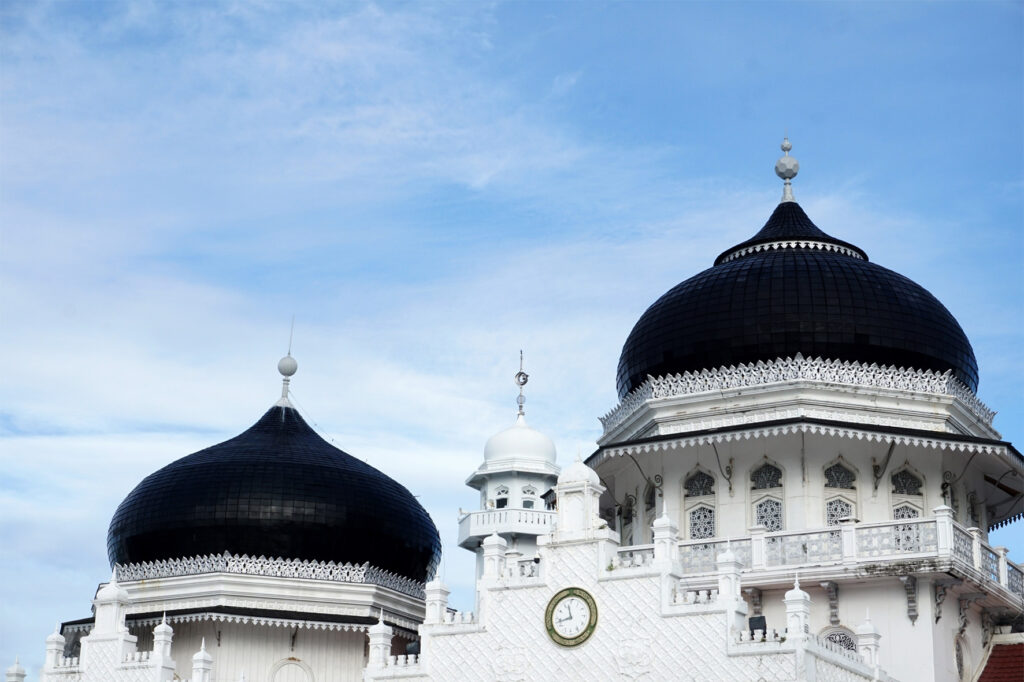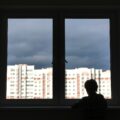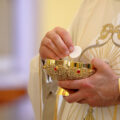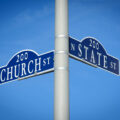Building mosques in France: Why so complicated?
Building mosques in France: Why so complicated?
Building mosques takes a lot of time because trust is under construction, too. Analyst Clémence Sauty dives into the lack of worship places for Muslims in France.
This article was written by Clémence Sauty and reflects her personal analyses and opinions, rather than those of EARS.
The COVID-19 pandemic led many governments to take preventive measures in lowering the contamination level. In France, temporary prohibitions of collective activities such as religious worship were implemented. The French Bishops’ Conference argued that Mass is a “vital need” for believers.[1] This Catholic protest highlighted the importance of religious gatherings for all religious communities. But not all of them have a place to meet up.
While most Christian[2] and Jewish[3] buildings were erected before the 1905 law that separated religion from the State, newly arrived religious confessions like Islam and Buddhism receive no public support for building worship places. Islamic communities, in particular, are in a very precarious real estate situation.[4] All of the efforts to build mosques face the same set of struggles. It is common knowledge that “building mosques in France is a slow and difficult process.”[5]
It seems to me that the deprivation of suitable places of worship is a threat to the principle of equality between all citizens.
The lack of safe places to pray in
The pressure on growing Muslim communities to find new places of worship is high. The Observatoire de la laïcité[6] notices that Islam is the second-most professed religion in France, yet third in number of places of worship.[7] [8]
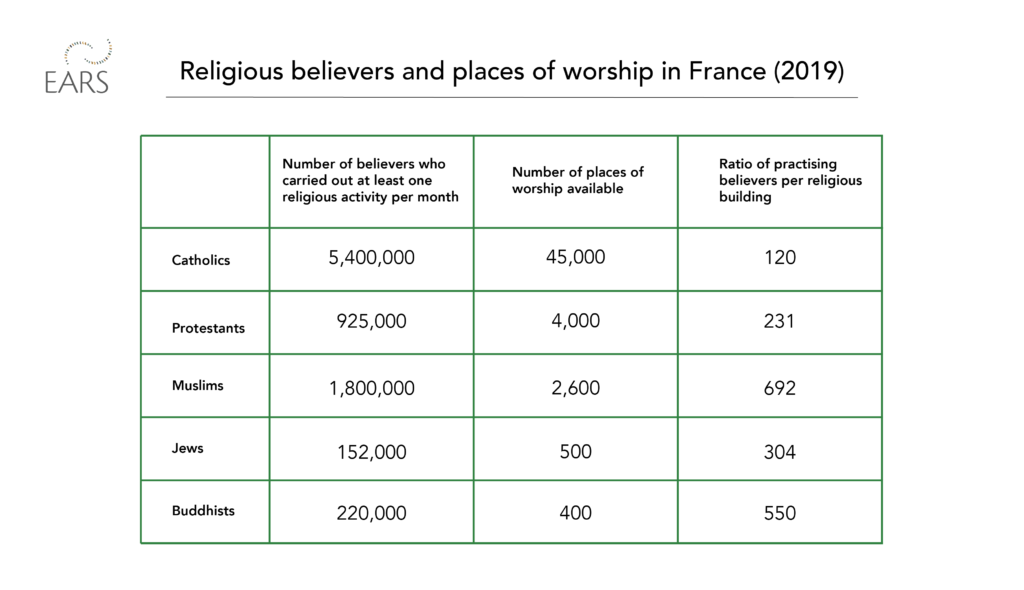
In addition to running out of places to hold meetings, Muslim communities lack space. The Observatoire de la laïcité observes that more than two-thirds of the current places they hold are rather small. The explanation is simple: from the 1980s onwards, prayer halls were created in apartments, former factories and shops, and in public rooms rented from municipalities. It is only since the 2000s that mosques have been built in France.[9] This qualitative improvement appears as a solution to the lack of space in prayer halls.[10]
Problems of mutual mistrust
As researchers in sociology and architecture Anne Bossé and Elisabeth Pasquier put it, the construction process depends on the ups and downs of trust between all stakeholders. Trust too, is “under construction.” Suspicion usually comes in four questions: Who funds, and implicitly, who holds power over the construction project? Does the architectural scheme satisfy all stakeholders? Is the law really impartial and applied fairly? Is long-term steady communication between all parties even possible?[11]
The problem of foreign influence through foreign funding of new mosques is currently most debated in France.[12] Given the proclaimed disengagement of the State in the construction of places of worship, communities need to opt between a lengthy process of self-financing and a quick process of funding from North Africa and the Middle East. As sociologist Solenne Jouanneau reports, not all French Muslims favour the second option because it reduces their autonomy to organise.[13] It however remains easier to resort to foreign fundings and imams.[14]
On the other hand, it is common for Muslim project managers to worry that French institutions will not fully cooperate. Public authorities often admit they doubt the capacity of Muslim communities to take part in their cities. Besides, urbanistic rules can be interpreted as means to slow down the construction process. For example, the public offer to build the Assalam mosque in a former dump outside the city of Nantes was experienced as disregarding by all concerned. Finally, institutional stakeholders rarely have expertise on religious matters.[15]
All this, aside from historical and political tensions, tends to make the construction of mosques in France really hard to achieve.
Is religion for the privileged?
My current understanding of laïcité leads me to believe that not just the ‘happy few’ should be able to assemble and practise their religion safely. The current pandemic has emphasised that space is security and privilege.[16] Should religion be only for the privileged? Religion, very much like the absence of religion, should not come with social, economic, or symbolic disadvantages.
Besides, in France, all religions are minorities. In 2019, 37% of interviewed French people said they believe in a God. In the meantime, 31% said they were atheists. Combined with the 15% of agnostic and 10% of indifferent respondents, it seems clear that the majority of French people do not participate in organised religion.[17] Therefore, targeting the rights of a marginalised religious group, like Islam in France, will inevitably undermine the rights of other less marginalised religious communities.
Facilitating the construction of mosques in France is necessary not only for preserving religious plurality and enforcing the principle of laïcité, but also for promoting religious rights in general. This is why some Christian authorities have expressed outrage after public authorities repeatedly accused Islam of being an “anti-Republican” religion.[18]
An ethics of religion
Most major religions teach the Golden Rule: “Treat others as you would like others to treat you.”[19]
But how exactly do we want to be treated? Philosopher John Rawl created a thought experiment to get our most honest response. Imagine you do not know who you are yet: neither your gender or skin colour, nor where and when you were born; neither your socioeconomic background, nor your physical and mental abilities. If someone asked you what kind of a society you would like to live in, you would probably choose a community where the most disadvantaged people are best treated. Just in case you end up being the least favoured.[20]
Rawls’ liberal egalitarianism[21] aims at forming a common definition of justice within which each individual can apply his or her own notion of a good life. This sounds similar to the principle of laïcité, which guarantees equal capacities for believers and non-believers to assemble and express their ideas.[22] What if religion was one of these non-deserved, arbitrarily discriminating, identities? Should believers not want to secure the existence of all religious people, just because they could be in their shoes?[23]
What it takes to build mosques
Freedom of conscience is an individual right; but it can only be exercised collectively. Thanks to those who use their freedom of conscience (by drawing satirical cartoons, criticising the powerful, expressing faith…), this right is more than just words, and it becomes possible for others to use it too. There is, I think, a de facto solidarity between all those empowered by this right. More than that, there is a responsibility to ensure that all can follow their spiritual and communal quest.
So why is it still so complicated to build mosques in France? Because, I find, such projects require more than just money, bricks, and strong arms. They demand that French people collectively reflect on what ‘equality before the law’ and ‘justice’ mean to them.
This article was written by Clémence Sauty and reflects her personal analyses and opinions, rather than those of EARS.
Interested in similar topics? Go to our Dashboard and receive free updates.
[1] Mgr Michel Aupetit, Radio broadcast on Radio Notre Dame, 25/11/2020
[2] List of churches in France and date of inauguration
[3] List of synagogues in France and date of inauguration
[4] Est-il vrai que la France manque de lieux de culte pour les musulmans ?
[5] Anne Bossé, Élisabeth Pasquier, Construire une mosquée en France : une question de confiance, métropolitiques.eu, 2014
[6] a/ Laïcité is the French rule authorising all opinions and religious beliefs. It is based on three core values: freedom of conscience and right to express oneself, separation between religious institutions and State institutions, equality of all before the law (regardless of their opinions and beliefs). See here: Qu’est-ce que la laïcité ?
b/ The Observatoire de la laïcité is a State institution that assists the government in its duty to promote and preserve the principle of laïcité. See here: L’Observatoire, c’est qui et c’est quoi ?
[7] Rapporteur général de l’Observatoire de la laïcité, Synthèse de l’étude sur l’expression et la visibilité religieuses dans l’espace public aujourd’hui en France, 2019
[8] 45,000 is the number of available churches, according to law researcher: Vincent Dussart, La problématique du financement des édifices de culte, in La Territorialité de la laïcité, 2019. The Observatoire de la laïcité only takes into account the 39,000 French churches currently used by the Catholic institution.
[9] List of mosques in France and date of inauguration
[10] The transition towards more proportionate places of worship takes time, though it adresses one of the most recurring reproaches geared towards Islam, according to which Muslim ‘street prayers’ are purposely proselytising and intimidating. On the contrary, sociologist Vincent Geisser insists that these are minor. The overflowing of people out of some narrow prayer halls is inevitable during religious holidays, he says. “This suspicion is all the more ironic that it is violent for these followers to pray outside. The prayer comes with a purity ritual that is incompatible with pollution, dirty pavement and rubbish.” See here: Laïcité, mosquées et système D
[11] Anne Bossé, Élisabeth Pasquier, Construire une mosquée en France : une question de confiance, métropolitiques.eu, 2014
[12] Nouvelle mosquée de Strasbourg : les porteurs du projet retirent leur demande de subvention
[13] For example in creating rooms for women to be able to pray inside the mosque or choosing their own imam
[14] Solenne Jouanneau, La petite mosquée dans la cité, Casterman, 2018
[15] Anne Bossé, Élisabeth Pasquier, Construire une mosquée en France : une question de confiance, métropolitiques.eu, 2014
[16] Social disparities were starkly revealed during the several lockdowns France went through since March 2020. 19% of the overcrowded accommodations were occupied by unskilled laborer, versus the 11% inhabited by (mostly Parisian) senior executives, according to the Institut de Recherche pour la Santé Publique, Les inégalités sociales au temps du COVID-19, Questions de santé publique, October 2020. Lack of space affected non-European immigrants the most. 41% of the first generation immigrants lived in overcrowded housing and 30% of those born to immigrant parents in France lived in overcrowded housing.
[17] Rapporteur général de l’Observatoire de la laïcité, Synthèse de l’étude sur l’expression et la visibilité religieuses dans l’espace public aujourd’hui en France, 2019
[18] In 2021 a law against ‘separatism’ is debated in Parliament, that would make it compulsory for religious organisations to regularly provide evidence of their compliance with ‘the principles of the Republic’. Christian authorities protest that it pushes systematic suspicion towards religion and undermines rights to freedom of conscience, of religion, and freedom of association. Originally designed to address religious fundamentalism, especially Muslim ‘extremisms’, this law ends up impairing all religions and religious rights. See: Loi sur le séparatisme : les cultes chrétiens haussent le ton
[20] John Rawls, A Theory of Justice, 1971
Rawls assumes there is an instinctive sense of good and an aversion to risk in everyone. That is why he thinks that people prefer securing the lowest social positions (rather than facilitating enrichment in the higher social positions), as long as they are unaware of their own future social status. Securing the lowest social position, he argues, begins with treating health and fundamental freedoms as primary goods.
[21] “A liberal egalitarian theory of justice seeks to combine the values of equality, personal freedom, and personal responsibility.” See: Bertil Tungodden and Alexander Cappelen, A Liberal Egalitarian Paradox, in Economics and Philosophy vol 22, 2006
[22] Qu’est-ce que la laïcité ?
[23] This reasoning only applies because religious beliefs are largely inherited. However, in contemporary France, religious identities are becoming much less constraining. See: Danièle Hervieu-Léger, Le pèlerin et le converti : la religion en mouvement, Flammarion, 1999. For example, 15% of people who were born to a Muslim family are now atheists, according to Rapporteur général de l’Observatoire de la laïcité, Synthèse de l’étude sur l’expression et la visibilité religieuses dans l’espace public aujourd’hui en France, 2019
